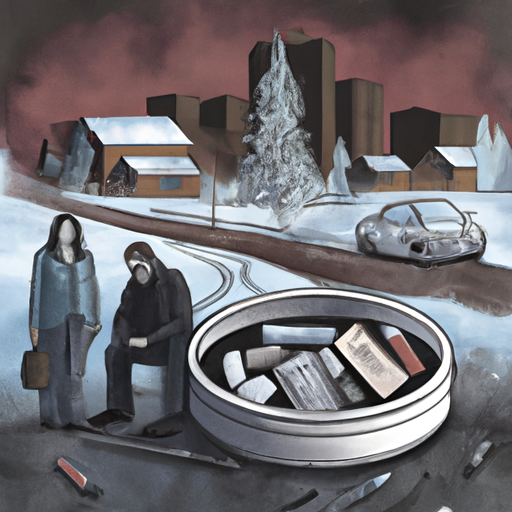The Canadian Opioid Crisis: A Glimpse at Alberta’s Struggle
Canada, like many other Western countries, is currently ensnared in the grip of a profound opioid crisis that is having sweeping impacts on its citizens. The province of Alberta is not an exception to this, which has recently gained attention due to its newly reported statistics, which some critics have questioned. This coverage by Global News sheds light on the present situation. The piece is a clear testimony that while there may be some signs of progress, the outlook is mixed and the overall issue of opioid-related harm in Alberta persists.
Understanding the Opioid Crisis in Alberta
According to Global News, the month of July 2020 marked the lowest single-month opioid death total in Alberta in four years. A total of 25 deaths were recorded, which while still a tragedy, marks a significant reduction from the 58 and 116 deaths recorded in the months of June and May respectively. This reduction, some argue, seems to indicate progress being made in dealing with the opioid crisis.
The Opioid Crisis: More Than Just Numbers
While the month-over-month decline in death rate may appear encouraging at first glance, the true nature of the opioid crisis in Alberta, like in many other regions, extends beyond the readily quantifiable death toll. The opioid crisis brings with it a ripple effect of social issues that impact the entire community.
The Broader Effects of the Opioid Crisis
- Increased Homelessness: The revolving door between homelessness and opioid abuse continues to swing. Many homeless individuals turn to opioids as a way to numb the pain and hardship of living on the streets, while for others, opioid abuse leads to a downward spiral that results in homelessness.
- Rising Crime Rates: Areas stricken by the opioid crisis often experience a surge in related criminal activity. Drug trafficking, theft and violence often accompany the opioid crisis, leaving community members to bear the cost.
- Strain on Health Services: The ongoing efforts to address the repercussions of opioid abuse place a sizable burden on health services. From overdose treatment to mental health support, the healthcare system is feeling the pressure.
Efforts to Combat the Crisis
The solution to the opioid crisis is not clear-cut. Alberta has made notable efforts, including making naloxone widely available to the public. Naloxone is a medication designed to rapidly reverse opioid overdose, which has saved countless lives. Resting on the naloxone initiative would, however, be inadequate. There are other essential approaches such as opioid substitution therapies and investing in comprehensive drug and mental health education and prevention programs that need consideration.
Despite these efforts, the Global News piece notes that some critics have questioned the reporting and methods of tracking these deaths, suggesting that the numbers may not provide a complete image of the situation. With Alberta’s provincial government attempting to consolidate data and address the crisis, this is a crucial time for open conversation and critical analysis.
The Ongoing Opioid Class Action
It’s also important to note that the province of Alberta is part of an ongoing opioid class action against pharmaceutical companies. The suit alleges these companies understated the addiction risks of opioids, contributing to the country’s current crisis. This litigation underscores the complexity of the opioid issue, which spans from individual usage to systemic influences.
The Way Forward
Putting the multi-faceted opioid problem under control requires a robust, multi-pronged approach. This includes ensuring accurate data reporting and analysis to keep the public informed, investing in education, prevention, and de-addiction programs, as well as holding accountable those who have precipitated the issue.
Conclusion
While Alberta’s reported decline in opioid-related deaths in July 2020 is encouraging, it remains one piece in a complex and persistent puzzle. From increased homelessness and crime to the strain on health resources, the opioid crisis continues to ripple through our communities. Robust measures, transparency in reporting, and holding pharmaceutical companies accountable through the ongoing opioid class action, will be crucial steps in resolving the crisis. It is a collective fight that needs our collective attention.
